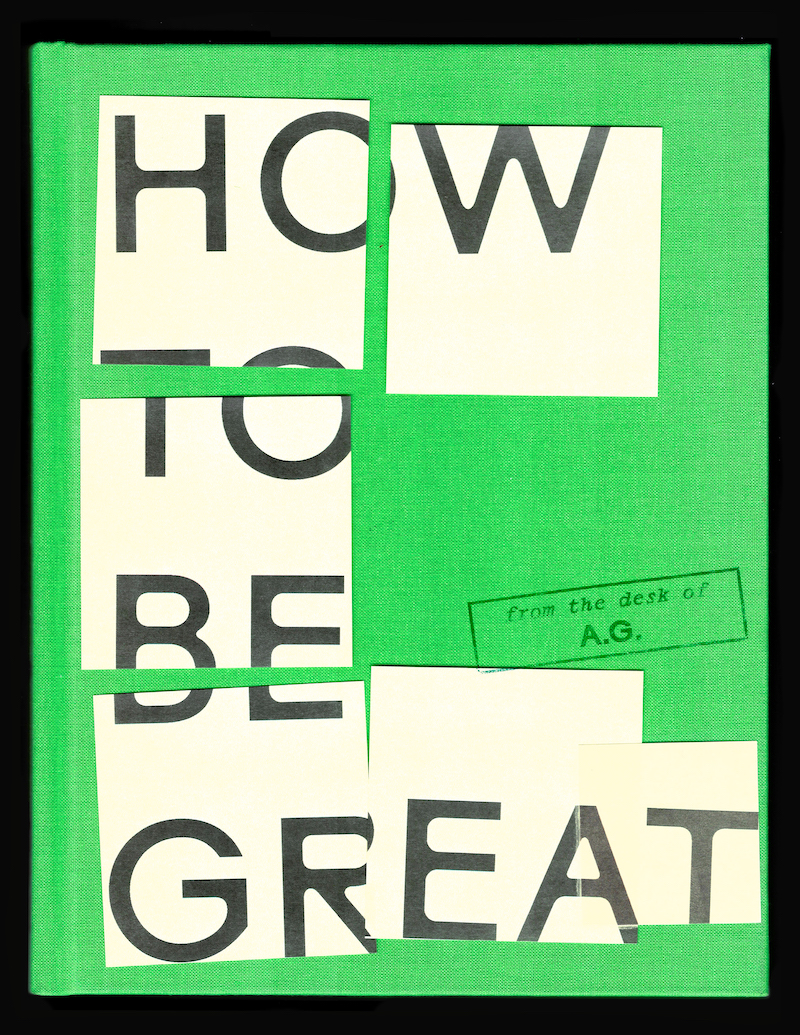How to Be Great: On Production & Potentiality
a performative lecture by A.G.
Wolfsonian—FIU
Miami Beach
June 8, 2023
The multimedia lecture explores the alchemy of anticipation, nerves, and hope, and how it relates to the smaller performative actions that make up our everyday lives, proposing to infuse them with the same level of care and grandeur as our much larger spectacles.
How to Be Great — Booklet
